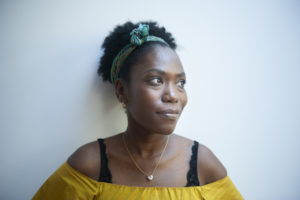
Breast cancer is the most common cancer among African-American women. It is also the second leading cause of cancer deaths among African-American women.
Unfortunately, in recent years you have heard about friends and family who have been diagnosed with breast cancer. The breast cancer incidence in Black women is lower than in white women. However, for women younger than 45, the incidence rate is higher among Black women than white women. It is very important that we practice good breast health.
1. Self Breast Exam
Self breast exam is one of the ways to prevent breast cancer. When you begin menstruating it is recommended that one-week after your period you do a self-breast exam. This is necessary so that you can familiarize yourself with your breasts and know which lumps and bumps are normal for your breasts.
It is recommended one week after your cycle because that is usually the same time every month and your breasts sometimes have different changes during your cycle. This ensures that your breasts are normal and the







